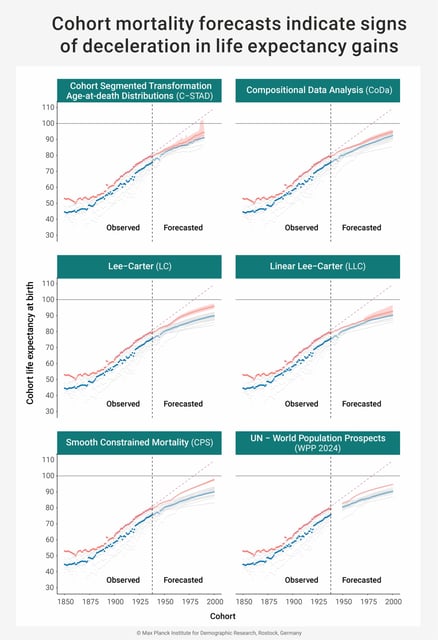Overview
- In forecasts for birth cohorts from 1939 to 2000, cohort life expectancy rises more slowly than the near‑linear gains seen for cohorts born 1900–1938 across high‑income countries.
- None of the cohorts studied is projected to reach an average life expectancy of 100 years, including those born in 1980.
- Age‑decomposition shows most lost momentum comes from diminished improvements at ages 0–5 and under 20, with later‑life gains too small to restore the earlier pace.
- The analysis uses Human Mortality Database data and six forecasting methods, and robustness checks find a 37%–52% slowdown for best‑practice series and 44%–58% for the median, with optimistic linear projections exceeding 95% prediction intervals.
- Authors stress policy relevance for pensions and health systems and note forecasts are probabilistic, meaning future medical or societal changes could alter outcomes.


